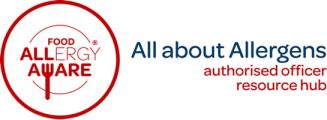Food legislation
Food service
People with food allergy have a responsibility to declare their food allergy when eating food from a food service provider, even if they are not personally buying the food (for example at a work function, event or wedding).
Clear information should be given to the person with a food allergy so they can make an informed decision about whether to buy or eat the food.
Food allergen management in food service and food manufacturing is governed by the Food Standards Code of Food Standards Australia and New Zealand (FSANZ).
The Food Standards Code is enforced by states and territories under their local Food Acts, which can be found here: Food law, treaties and agreements (FSANZ).
Authorities will check that food businesses are following the Food Standards Code. You can find these here: Food enforcement contacts for Australia and New Zealand (FSANZ).
Imported food is monitored by The Department of Agriculture, Fishergies and Forestry.
You can find further information on enforcing food laws here: Implementation and enforcement of food laws (Food Regulation)
Packaged and unpackaged food
People with food allergy rely on accurate information being provided on the labels of packaged food. They use this information to make decisions about whether to purchase and eat the food.
There are sections in the Food Standards Code that relate to labelling food with allergens.
- Standard 1.2.3 - information on mandatory advisory statements
- Standard 1.2.3-3 - mandatory warning statement requirements if royal jelly is present in food.
- Schedule 9 - table of mandatory advisory statements, including bee pollen
- Standard 1.2.1 - information on how to provide allergen information:
- on the label
- for food on display
- when a customer asks
- Standard 1.2.4 - information on listing ingredients
Further to this, the relevant Food Acts include the following:
- It is against the law to not follow the labelling requirements set out in the Food Standards Code.
- It is against the law to make a false or misleading claim that a food does not contain an allergen.
Additional Offences under Food Acts
Under the relevant state and territory Food Acts, there are additional offences:
- A person must not incorrectly describe a food for sale if the person knows that a consumer of the food who relies on the description will, or is likely to, suffer physical harm.
- A person must not sell food that the person knows is incorrectly described and will, or is likely to, cause physical harm to a consumer of the food who relies on the description.
This can apply where a food business continues to supply a food even though it is aware, or should be aware, that the food contains an ‘undeclared’ allergen.
Food Regulation
The Australia and New Zealand Food Regulation Compliance, Monitoring and Enforcement Strategy provides information for food regulators, including actions that may be taken.
Content updated December 2023.
